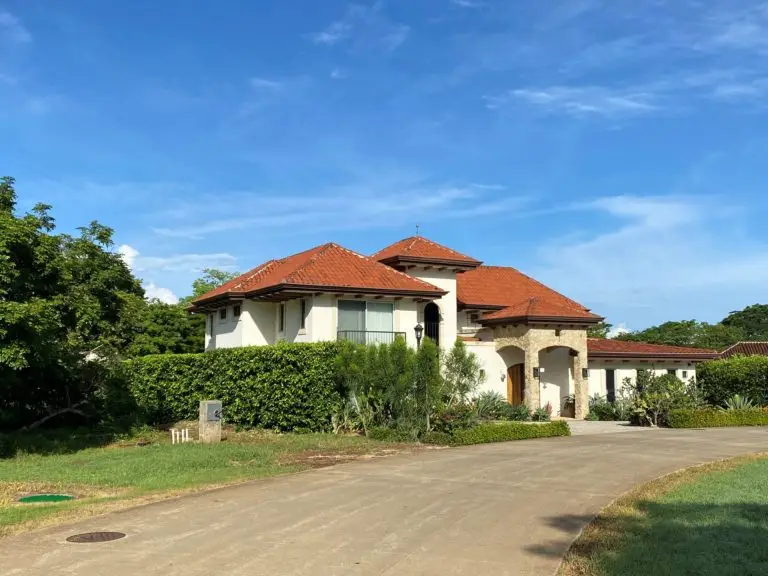Buying land in Costa Rica: avoid title theft and fraud.
Once you become a real estate owner, protecting your property title from scams and property fraud is essential. I assume you followed my advice, and due diligence was performed on the real estate property. You also hired an attorney you trust, and the property title transfer was done correctly. Nevertheless, you should know that title theft is an issue in Costa Rica, especially with foreigners who don´t live here. Scams can happen anywhere, but there have been situations in Costa Rica where fraudulent signatures are used to transfer properties. In a small percentage of cases, the notary public acted criminally as a scammer in the real estate fraud. In other cases, the scammers deceive the notary, impersonating the owner, by providing him with fake identifications.
Real estate fraud is something to keep an eye on. Sometimes, the properties are transferred repeatedly, ending up in the name of innocent persons. These people acquired the real estate property in good faith under the Registry’s information. They acted in good faith because they were unaware of the property fraud. However, you should know that property title theft is not a specific issue for Costa Rica. Property fraud can happen to anyone in any other country, as criminality is a global issue. Nevertheless, you can take steps to protect your investment.
Why does this happen? How can I be safe when I buy land in Costa Rica?
Sometimes, this happens because the Notary Public gets fooled by the defrauders, who present them with fake identifications. I regret to say, that in some minor cases, there have been corrupt notary publics in cahoots with the scammers. The notary public makes a bogus transfer scripture in his protocol, falsifying signatures. A copy of it is filed at the public registry. The registry transfers the property to the new “owner.”
When this happens, they take an additional step: the criminals usually transfer the property to people who have no part in the scheme. These people acquire the property in “good faith.” In other instances, the defrauders mortgage the property with a bank or a third party. When the actual owner checks the Registry, he finds his land was sold and even has a mortgage on it! We will cover what you should do if you find yourself in this situation. I will also give you some tips to prevent this from ever happening.

Advice to prevent real estate fraud. Is the property title in your name?
Let’s suppose you wanted to buy land in Costa Rica. You hired a trusted attorney to do the due diligence on the real estate property. You signed the protocolized sales agreement. But is the property in your name? How do you make sure? Once a notary public has transferred the property, you must check your property title. This is done online. What you want to do, is to check the Public Registry to ensure that the real estate property is in your name. Suppose you bought the land as a physical person. It should appear in your name. If you purchased land through a corporation, it should be under the corporation´s name.
I will be happy to check this for you. It involves studying the Public Registry with the real estate property number. This will give me the property´s information, such as the owner’s identity, encumbrances, and other vital data. Another thing you can do is hire an attorney to perform a post-sale due diligence study on the property to ensure everything was done correctly. You should request all the documentation from this post-due diligence study.

Keep the social documentation with you if you purchase real estate property through a Corporation.
You must keep the social documentation if you buy land in Costa Rica through a corporation. Having the company´s books and shares in a secure location is the right thing to do. The most important books are the Book of Shareholders and Acts. You must also ensure that you, or your loved ones, are the only people with powers of attorney on the board of directors.

Adding another layer of security: Placing a mortgage bond on your real estate property.
To keep your property safe, I recommend constituting a mortgage bond. A mortgage bond is a title that gives the bearer the right to execute the property for the specified amount. This is a physical title that you can keep in your safe, and the important thing is that the property gets encumbered with the mortgage. You can execute the mortgage bond if any fraudulent activity happens and the property is illegally transferred. The only person that can execute the mortgage bond is the bearer, in this case: you.
To be clear, the bearer must have the physical mortgage title to execute. The same is true to cancel the mortgage encumbrance on the property: the physical title must be presented to the Registry to do this, and it´s later incinerated. The downside is that you can´t lose the document, or the encumbrance won´t be lifted, nor will you be able to execute. Trust me; you want to keep the title in a safe place! The idea is to create the mortgage bond for the actual property price. So if it´s fraudulently transferred, it will return to you. All you need to do is execute. Constituting a mortgage bond is a great idea after you acquire the property; it acts as a type of “insurance.”
A criminal action is what you should file in case of real estate title fraud.
If you discover that your property was transferred without your consent through fraudulent means, you must immediately come to Costa Rica and file a criminal action. You have just become a victim of real estate title fraud. The criminal action begins with a complaint filed at the State Attorney´s Office, the “Ministerio Público.” Penal Jurisprudence does not protect third-party individuals who acquire the property in “good faith.” So if the property was transferred illegally, and even if third parties are involved in good faith, or if it was mortgaged to an innocent third party, the criminal action will reverse everything back to you in a clean slate. After all, these acts are null and void since you didn´t consent to them. You must also consider that there is a statute of limitations: ten years after the fact. After ten years, your right crumbles against the passing of time.
Never file a civil action in case of property title theft
You should never file a civil action to restitute a property in case of title theft. A criminal action is the only way to be successful in asset recovery. This is because civil jurisprudence is opposite to criminal jurisprudence. Contrary to the penal courts´ position, civil jurisprudence protects people that have acted in good faith. So even though you didn´t consent, if the property was later transferred to an innocent third party, who acted in good faith under the publicity of the Public Registry, that third party is protected by the civil courts. This means you won´t get the property back. So be sure to file your claim through a criminal action.
Dr. Christopher Pirie Gil.